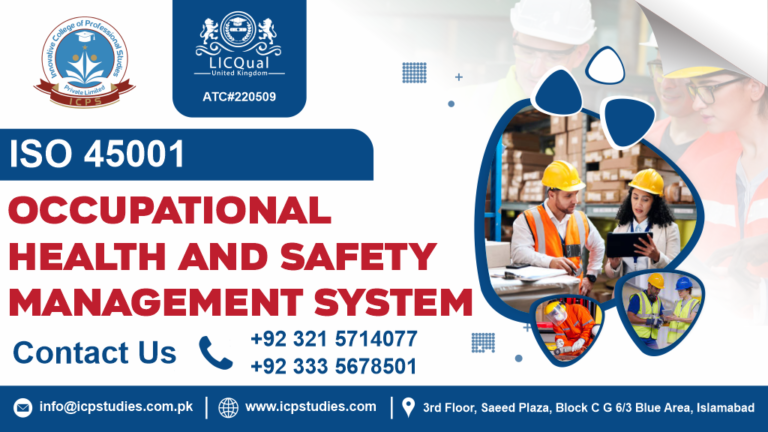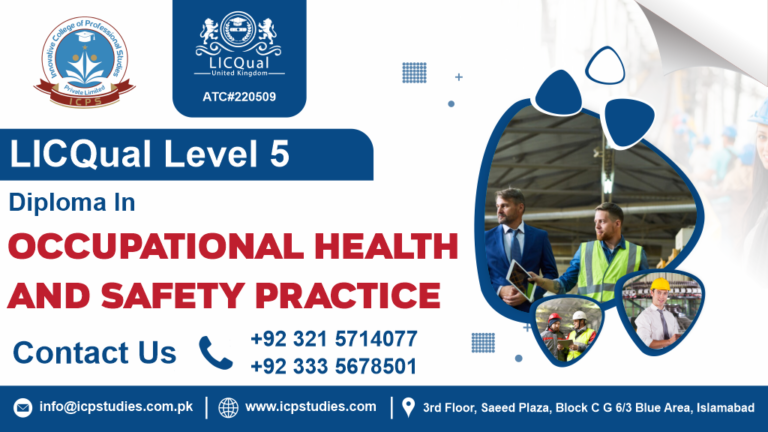In today’s world, ensuring food safety is of paramount importance, whether you are working in the food industry or simply preparing meals at home. For those looking to establish a solid foundation in food hygiene, the LICQual CIEH Introductory Certificate in Food Safety (Level 1) offers an excellent starting point. This certification is designed to equip learners with essential knowledge and skills to maintain high standards of food safety, safeguarding both consumers and businesses from foodborne illnesses.
The LICQual CIEH Introductory Certificate in Food Safety (Level 1) is an entry-level qualification provided by the Chartered Institute of Environmental Health (CIEH). This course is specifically tailored for individuals who are new to the food industry or require a basic understanding of food safety principles. The certification is globally recognized and provides learners with the fundamental skills needed to ensure food safety in various settings.
The LICQual CIEH Introductory Certificate in Food Safety (Level 1) is an invaluable credential for anyone entering the food industry or seeking to enhance their knowledge of food hygiene. By understanding and implementing the principles of food safety, you can play a vital role in preventing foodborne illnesses and ensuring the well-being of consumers. Whether you are a new employee, a volunteer, or an aspiring food business owner, this certification provides a solid foundation for your journey in the world of food safety. Enroll today and take the first step towards ensuring excellence in food hygiene.
All About LICQual CIEH Introductory Certificate in Food Safety (Level 1)
Course Overview
The LICQual CIEH Introductory Certificate in Food Safety (Level 1) is an entry-level qualification designed to provide learners with a fundamental understanding of food hygiene and safety practices. Offered by the Chartered Institute of Environmental Health (CIEH), this certification is recognized globally and is ideal for individuals who are new to the food industry or require a basic grasp of food safety principles.
The LICQual CIEH Introductory Certificate in Food Safety (Level 1) is an essential qualification for anyone involved in the food industry or interested in food safety. It equips learners with the necessary knowledge and skills to maintain high standards of food hygiene, protecting consumers from foodborne illnesses and promoting a safer food environment. Whether you’re a new employee, a volunteer, or an aspiring food business owner, this certification is a valuable investment in your professional development and the well-being of those you serve.
Study Units
To enroll in the LICQual CIEH Introductory Certificate in Food Safety (Level 1) course, candidates should meet the following entry requirements:
- No Formal Prerequisites: There are no specific prerequisites, making the course accessible to all interested participants.
- Basic Literacy Skills: Candidates should have basic reading and writing skills to engage with course materials effectively.
- Age Requirement: Participants must be at least 14 years old.
- Language Proficiency: Proficiency in the language of instruction is necessary for understanding course content.
- Interest in Food Safety: A willingness to learn about basic food safety practices and principles.
These requirements ensure that participants are prepared to engage with the course content and apply their knowledge in introductory food handling and safety contexts.
4o mini
The LICQual CIEH Introductory Certificate in Food Safety (Level 1) course is designed for:
- New Food Handlers: Individuals starting their careers in food preparation or service.
- Volunteers: Those working in community kitchens or food programs who need basic food safety training.
- Students: Learners studying hospitality or food-related subjects seeking foundational knowledge.
- Catering Staff: Employees in food service settings looking to understand basic food safety principles.
- Anyone Interested in Food Safety: Individuals who want to learn about safe food handling practices.
This course is ideal for anyone looking to gain essential knowledge about food safety practices in a straightforward and accessible manner.
Learning Outcomes
- New Employees in the Food Industry:
- Individuals starting their careers in food handling, catering, hospitality, or retail environments.
- Those who need to meet the basic legal requirements for food safety training as part of their job induction process.
- Support Staff:
- Non-food handling staff, such as cleaners, maintenance workers, and delivery personnel, who work in food premises and need to understand basic food safety to prevent contamination.
- Volunteers:
- Individuals involved in food-related activities within community organizations, charity events, or religious gatherings.
- Volunteers who prepare, handle, or serve food at events and need to ensure safe food practices.
- Students and Trainees:
- Culinary students or hospitality trainees who require a fundamental understanding of food safety as part of their educational curriculum.
- Individuals enrolled in vocational training programs related to food preparation and handling.
- Home-Based Food Businesses:
- Entrepreneurs and small business owners operating home-based food businesses, such as bakers, caterers, or home meal delivery services, who need to comply with food safety regulations.
- Childcare Providers:
- Staff in daycare centers, schools, and other childcare facilities responsible for preparing and serving food to children, ensuring a safe and hygienic environment.
- Healthcare Workers:
- Individuals in healthcare settings, such as hospital kitchen staff or caregivers in nursing homes, who handle or serve food to patients and residents.
- General Public:
- Anyone with an interest in food safety, including home cooks and individuals who want to improve their knowledge of safe food handling practices for personal use.
The LICQual CIEH Introductory Certificate in Food Safety (Level 1) provides a solid foundation in food safety principles and practices, making it suitable for individuals at various stages of their careers and from diverse backgrounds. Whether you’re entering the food industry for the first time, volunteering at a community event, or simply seeking to enhance your knowledge of food safety, this course offers valuable insights and skills to help you ensure the safety and well-being of yourself and others.
FAQs about LICQual CIEH Introductory Certificate in Food Safety (Level 1)





